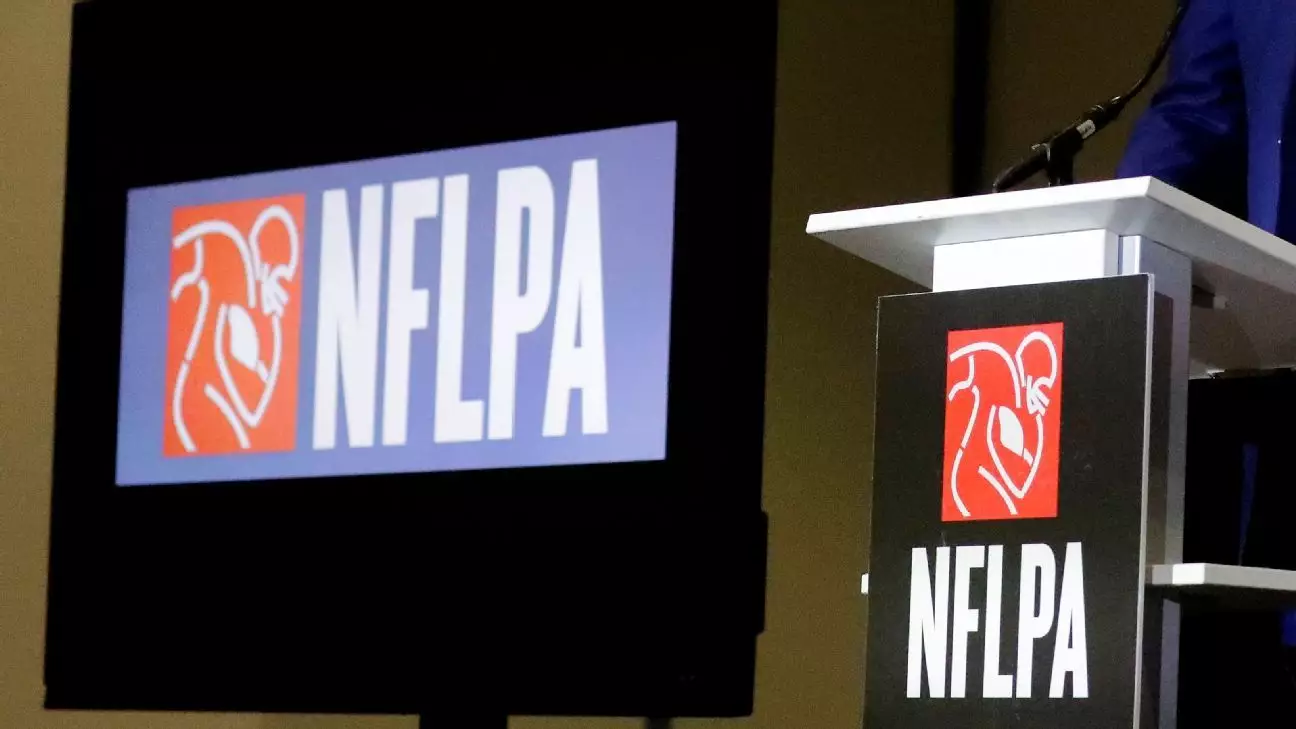The recent appointment of David White as the interim executive director of the NFL Players Association might seem, on the surface, like a step toward stability. However, beneath this veneer lies a deeper crisis of credibility and trust that continues to threaten the union’s integrity. The NFLPA, an organization ostensibly designed to serve the best interests of the players, is instead mired in suspicion, internal battles, and unresolved scandals. The selection process, shrouded in secrecy and clouded by past controversies, reveals an organization desperately grasping at stability while still grappling with its turbulent history.
Despite White’s impressive resume—marked by roles as diverse as the former board chair of the Federal Reserve Bank of San Francisco and leader of SAG-AFTRA—the question remains whether he can navigate the union through the treacherous waters of internal disillusionment. What’s missing from the current narrative is a transparent, forward-looking strategy that genuinely acknowledges the union’s credibility problem. The appointment, although potentially capable, appears more like a stopgap measure than a true remedy.
Leadership Crisis and Lack of Transparency
The process leading to White’s interim appointment underscores the broader problem: the NFLPA’s leadership has repeatedly faltered under the weight of scandal and internal discord. The last election, which itself was held behind closed doors at a private resort, was cloaked in secrecy, eroding trust among players. When Lloyd Howell Jr. resigned amid allegations involving his outside employment and questionable conduct—such as work with private equity and questionable expenses—the union’s reputation was dealt a blow from which it has yet to recover fully.
What emerges is an unsettling pattern: an organization that prefers inscrutability over transparency. Players and observers alike now question whether the union’s leadership genuinely reflects their interests or merely serves a small inner circle wielding influence behind closed doors. This opacity fosters cynicism and weakens the union’s bargaining power, especially when critical issues like player health, safety, and financial security hang in the balance. The forthcoming search for a permanent director must avoid falling into this trap once again, but past experiences cast doubt on whether real change is achievable without a cultural overhaul.
The Players’ Voice and the Need for Genuine Reform
The narrative of trust, unity, and player empowerment is central to the NFLPA’s purpose—and yet, it remains elusive. The union’s recent leadership vacuum, punctuated by high-profile resignations and insider maneuvering, sends a troubling message: leadership is more concerned with preserving its own stability than with actual reform. Notably, the reliance on a few insiders, such as Don Davis and Charlie Batch, reflects an unwillingness to open the door to fresh perspectives or to confront uncomfortable truths about the union’s internal governance.
Moreover, the political dynamics within the union—an intricate web of player representatives, executive committees, and influence battles—further complicate the path forward. The silent domination of internal politics over transparent decision-making weakens the union’s ability to serve its members effectively. If the NFLPA genuinely aims to prioritize players’ interests, it must radically rethink its governance model—embracing openness, accountability, and a more democratic leadership structure.
Moving Toward a Humble and Accountable Future
White’s appointment, while a positive gesture, cannot serve as a facade for superficial fixes. True accountability demands that the NFLPA confront its deepest shortcomings: transparency, integrity, and genuine commitment to reform. The focus should shift from mere leadership transitions to rebuilding a culture rooted in humility and collective responsibility. This means empowering players—not just as beneficiaries but as active participants in decision-making—and implementing structures that prioritize their health, financial security, and voice.
In the end, the future of the NFLPA hinges on whether it can evolve into an organization that values honesty over secrecy and collaboration over self-interest. The union must recognize its moral obligation to rebuild trust through radical transparency and meaningful reform—not just to placate disgruntled players but to genuinely uphold the principles of fair labor representation. The true test of White’s interim leadership, and for the union as a whole, is whether they will meet this challenge with humility, courage, and a steadfast commitment to genuine progress.


Leave a Reply